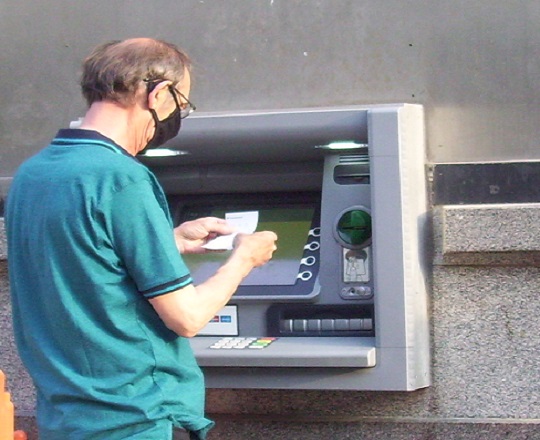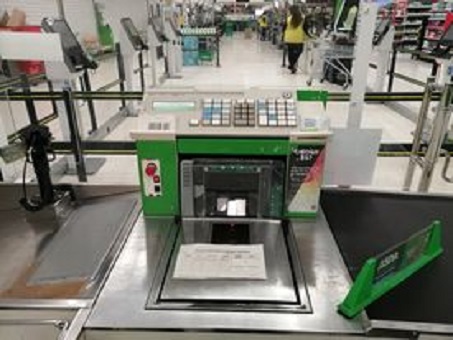Towards a cashless society?

According to the World Health Organisation there is “no evidence” that coronavirus is spread through handling bank notes.
That is probably true most of the time, but the supermarket cashier watching customers licking their fingers before counting notes to pay for their weekly shop has a right to be cautious.
As lockdown approached, it was not only toilet rolls that were being hoarded. People were also building up their reserves of cash. 14% of people are keeping more cash at home.This happened Worldwide – Canada faced a shortage of $50 notes, while the USA suffered a coin shortage. Even now, though the numbers of withdrawals from ATM’s has decreased, the average amount withdrawn has seen an increase.
According to Which? the increased use of cards over cash during the COVID19 crisis has “accelerated the shift to a digital economy”. The charity found that 16% of people had difficulties either accessing or paying with cash. Of that group, one quarter said that they had been unable to buy something when cash payments were refused in shops.
Which? has been concerned about the numbers of people who rely on cash and has been running a “freedom to pay” campaign since 2017.
With 247 bank branches due to close this year, the numbers of bank branches will have dropped by one third during the last five years. While the numbers of ATM’ continued to increase up yo 2016, numbers are now in steep decline. This causes problems for people who rely on cash, and those in rural areas.
While there is a campaign to protect those who depend on cash, there is also a lobby that favours the move towards a cashless society. Cash, they argue, facilitates money laundering, tax evasion and drug dealing. But will the growth of new virtual currencies provide criminals with an easy alternative?
For some small businesses the increased use of cards is bad news. Card payments cost money to process, and their weekend takings may not reach their bank accounts until Wednesday.
Larger businesses, and especially supermarkets, may take a different view. They don’t want large amounts of redundant cash in their self scan machines. And cash takings need to be counted and bagged before being banked using expensive security companies.
Shops have a legal right to refuse cash payments and there is no doubt that some people have been seriously inconvenienced by shops insisting on card payments only.
Birds the bakery received some unfortunate publicity, firstly when a 94 year old woman was unable to buy bread. Later there were reports that Megan Metcalfe, an employee for 44 years and Manager of Birds at Radcliffe on Trent, was sacked after accepting customers cash and paying the company on customers behalf using her own card.

